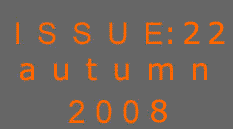
Thirty-five years of operation at Borssele NPP
To mark the occasion of the thirty-fifth anniversary of nuclear operation at Borssele, our friends in the Netherlands produced a commemorative fact sheet and questions and answers document…and here they are. If you want to get a copy of the fact sheet contact details are provided at the end of the Q and A sheet
Thirty-five years of operation for the Borssele reactor
Thirty-five years of high-profile energy
Thirty-five years of people serving people
1969
The Provincial Zeeland Power Company (PZEM) orders a reactor. The construction contract is awarded to Siemens/KWU.
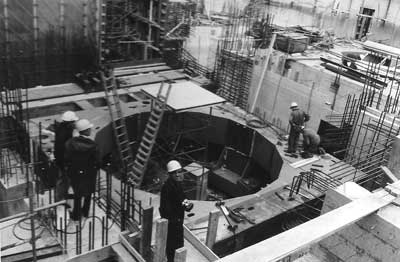
25 October 1973
Siemens/ KWU hands over the reactor to PZEM, following successful trials. The majority of the electricity is supplied directly to large industrial customers. The government issues a permanent operating licence.
1979-1984
Partly as a result of a controversial breakdown at the American reactor at Harrisburg, in March 1979, the safety facilities are upgraded (including the construction of a reserve cooling water system).
26 April 1986
The accident at the Chernobyl reactor in the Soviet Union causes great uproar. There is a moratorium on the construction of new reactors.
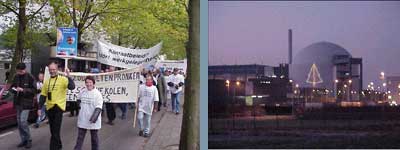
1987
The Borssele reactor becomes part of the Electricity Producers Co-operative (SEP) in Arnhem. The use of the Borssele reactor is included in the Electricity Plan. Supply is no longer provided directly to large industrial customers.
1990
Ownership of the reactor transfers to a public limited company, EPZ, (Southern Netherlands Electricity Production Company). EPZ carries out a study into how the existing Borssele reactor is to be upgraded to incorporate the latest technology in order to ensure long-term production. SEP finances the upgrade project.
May 1993
The Minister for Economic Affairs notifies the Lower Chamber of Parliament that the planned upgrade of the reactor will be reviewed in an extensive licensing procedure. This will delay the start of the works by three years. On 21 June, SEP announces that, due to this delay, the costs can not be written down within the planned period of the Electricity Plan (1995-2004).
11 July 1994
The Minister for Economic Affairs approves SEP’s Electricity Plan, which states that, in any event, the reactor shall remain in operation for three years after the plan period (up to 2007) in order to be able to cover the upgrade investment.
August – November 1994
A licence is granted for the upgrade project, known as ‘Modifications.’
During the parliamentary debate about SEP’s approved E-plan there are discussions about the extension of the Borssele reactor’s operating lifetime from 2004 to 2007. After an initial split vote, a motion by the Green Party (Groen Links) to reject this extension was accepted by 76-73 votes.
16 December 1994
The Minister for Economic Affairs announces that, in order to give meaning to Parliament’s decision he would withhold his approval for that part of the E-plan that stated that the reactor would remain in operation until 2007.
1997
The ‘Modifications’ project (at a cost of 450 million Guilders) is completed successfully. There is a great deal of international interest for this innovative project, which becomes a model for similar projects in Sweden and Japan.
December 1997
The Minister for Economic Affairs decides to include a closure date of 31 December 2003 in the operating licence. Various stakeholders appeal against this decision.
1 July 1999
With the introduction of the Electricity Act ’98 the parliamentary responsibility for the E-plans is abolished.
February 2000
The Council of State declares that the decision in December 1998 that operating term should to be restricted to 31 December 2003 was taken unlawfully. The operating term is once again confirmed as permanent.
May 2000
In response to the judgement by the Council of State the government argues that, on the basis of agreements from 1994, EPZ is obliged to close the reactor in 2003. EPZ denies that there are any agreements that oblige the company to close the reactor.
December 2000
The Minister for Economic Affairs has EPZ is summonsed before the Civil Court in Den Bosch and is ordered to enforce the alleged agreements.
1 January 2001
As a consequence of the E-Act ’98 the Cooperation Agreement (SEP) is terminated. The electricity production market for large consumers is now liberalised.
21 September 2002
The court in Den Bosch declares the government unable to prove in any way that a binding agreement was entered into to close the reactor. EPZ has the full right to continue to operate the reactor after 2003.
May – June 2003
In the coalition agreement of the Balkenende-1 Cabinet no end date was given. For the Balkenende-2 Cabinet it was stated that the reactor would have to close by 2013 at the latest.
Secretary of State Van Geel (VROM – Ministry for House, Regional Development and the Environment) announces that he would draw up a “Plan of Approach” in order to implement the closure of Borssele in 2013.
2005
In the spring of 2005 the Cabinet commissions a study into the consequences of closing the reactor in 2013 or keeping it open for longer. From the point of view of safety considerations there are no insurmountable objections for keeping the ‘Borssele’ reactor open for longer.
In exchange for keeping the reactor open for longer, Essent and Delta, the shareholders of EPZ, will invest an additional 250 million euro in sustainable energy. The government will also invest 250 million €. If there had been a forced closure of the reactor 2013 this money would have been necessary to pay compensation.
Between 2006 and 2012 the money will be spread, almost evenly, between energy saving, CO2 storage and renewable energy sources.
The agreements are laid down in a Draft Covenant that also states that the reactor must continue to be one of the top 25 safest reactors in the West.
16 June 2006
The Borssele Covenant is signed in Goes.
This allows the Borssele reactor to continue to operate until 2034 under specific conditions. This Covenant brings to a close a long political debate about the continued existence of the reactor.
CDA Secretary of State Van Geel (VROM) and the Directors of Essent, DELTA and EPZ sign the Covenant: combined with investments in sustainable sources the reactor will remain open until 2034. The government thus gives a clear and positive signal about the future of the reactor.
With this Covenant EPZ starts a new chapter in its operating history and can once again focus entirely on its core activities: the production of safe, affordable and CO2-free electricity.
19 October 2006
Major overhaul of the Borssele reactor takes place. Safety of the reactor increases to an even higher level through modifications that arise from what is known as the “ten-year evaluation” process, which EPZ concluded in 2004.
The Nuclear Energy Act licence requires EPZ to appraise the safety status of the reactor every ten years taking into account the latest technology and (future) legislation. The modifications implemented offer protection against rare accidents. Examples of these modifications are the installation of extra sensors to detect gas clouds originating from shipping accidents on the Scheldt, improved protection against extreme high or low tides and even better fire fighting facilities to combat kerosene fires in the event of aviation accidents.
With these measures in place the Borssele reactor more than meets all points of the current stringent (inter)national statutory obligations and directives relating to nuclear safety and radiation protection.
The temporary shutdown also allows the high and low pressure turbines in the conventional part of the power station to be modernised. The upgraded turbines mean that approximately 35 Megawatts of additional power can be generated and EPZ can supply around 80,000 homes with CO2-free power.
Thirty-five years
Safe and clean until 2034
Thirty-five years of ”pure” power
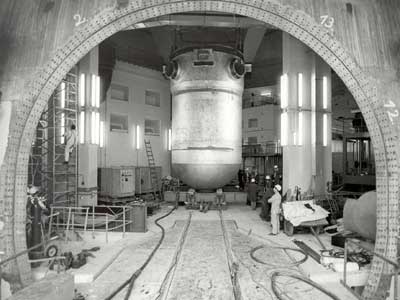
The ‘Borssele’ reactor first produced electricity in 1973. It was not long before ‘nuclear energy’ became a topical talking point. Supporters and opponents started debating this issue – a debate that continues today and will almost certainly continue in the future.
Do we think that’s a bad thing?
EPZ’s answer is “no“. Challenges have to be met. Debate about the place of technology in society is a good thing, provided that it is conducted fairly and openly. It is only through debate that we can discover the real problems and solutions that are acceptable.
That debate is continuing with renewed interest. We are facing new challenges, such as climate change and the emergence of new economies. Existing challenges have become topical once again, e.g. dependency upon energy suppliers who are far away but powerful and a shortage of energy. That is why a new approach to and perspective on nuclear energy have arisen.
Although we operate the only reactor in our country, our role in the debate is small. The debate is often about us.
Do we think that’s a bad thing?
We understand that we are a main topic of debate. After all, it is society that decides how it wishes to satisfy its energy needs. All the same, we do contribute to the debate. We achieve this by striving to maintain our reactor as one of the safest in the world and through our initiatives aimed at promoting a better, more efficient and more sustainable use of nuclear energy. We use recycled nuclear fuels and we strive to increase energy efficiency by producing less waste.
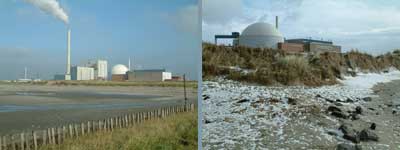
And what about the future?
In accordance with the terms of the Covenant signed with the government, ‘Borssele-1’ will continue to produce electricity until 2034. We shall invest amply to ensure the safe and clean production of electricity from the current reactor. And when the time is right and the people are ready we would like to be involved in the construction and operation of ‘Borssele-2’ on a site reserved next to ‘Borssele-1’.
EPZ PURE POWER
EPZ
Zeedijk 32, 4454 PM Borssele
Postbus 130, 4380 AC Vlissingen
Telephone 0113 - 356 000
Facsimile 0113 - 352 550
E-mail: info@epz.nl
Main website: www.epz.nl
Vacancies: www.werkenbijepz.nl
35 years Borssele reactor
|

